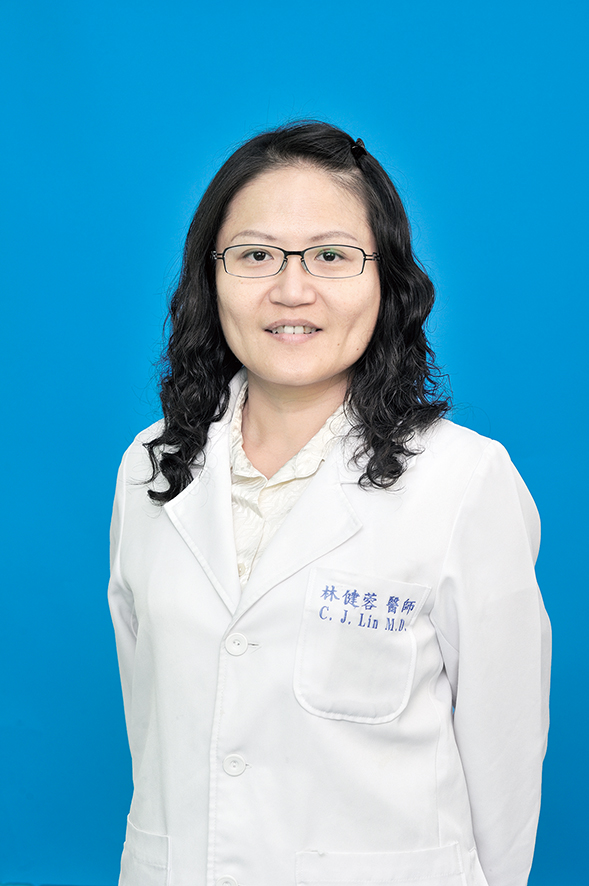
Dr. Lin Jian-Rong, Traditional Chinese Medicine Department.
Dr. Lin Jian-Rong from the Traditional Chinese Medicine (TCM) Department of our hospital recently shared an inspiring success story. A patient who had undergone surgery for ovarian cancer and developed recurrent enterocutaneous fistula was able to successfully overcome long-term fistula issues and return to normal life after receiving combined Chinese and Western medicine care at both our hospital and Tri-Service General Hospital. This case not only highlights the unique effectiveness of Traditional Chinese Medicine in addressing complex surgical complications but also underscores the importance of Chinese-Western medicine collaboration in enhancing the overall effectiveness of cancer treatment.
The 61-year-old female patient was diagnosed with left-sided malignant serous ovarian cancer (FIGO stage IC3) in 2018. She underwent multiple surgeries, chemotherapy, targeted therapy, radiation therapy, and intraperitoneal hyperthermic chemotherapy (HIPEC). However, in January 2023, the patient experienced a rupture and leakage at the site of an intestinal anastomosis following surgery, which led to an intra-abdominal abscess, resulting in sepsis and a right lower abdominal enterocutaneous fistula.
An enterocutaneous fistula is an abnormal passage between the intestine and the skin, often occurring after surgery for malignant tumors. This patient's condition is particularly challenging, as the enterocutaneous fistula repeatedly ruptures, severely affecting their quality of life.
The patient underwent emergency surgical repair and was placed on nil per os (NPO) on January 12, 2023. They were also provided with nutrition via a peripherally inserted central catheter (PICC) and total parenteral nutrition (TPN). However, the enterocutaneous fistula recurred multiple times:
● First occurrence: From January to May 2023, the patient endured more than four months of fasting.
● Second occurrence: In July 2023, the fistula ruptured again, requiring fasting until July 21.
● Third occurrence: In October 2023, the fistula ruptured once more, and the patient was hospitalized due to a urinary tract infection.
On December 25, 2023, the patient began receiving integrated care from both Western and traditional Chinese medicine.
Dr. Lin Chien-Jung's team from the Traditional Chinese Medicine (TCM) Department at our hospital primarily treated the patient with Chinese herbal medicine, aiming to reduce inflammation and promote intestinal healing. The prescribed herbal formula included various ingredients such as Poria (Fu Ling), Artemisia Capillaris (Mian Yin Chen), Ligusticum Chuanxiong (Chuan Xiong), and Aconiti Lateralis Radix Praeparata (Pao Fu Zi).
The TCM team adjusted the treatment plan based on the patient's condition. After receiving TCM treatment, the patient showed significant improvement:
● Gastrointestinal symptoms improved, leading to increased food intake.
● The dosage of parenteral nutrition was reduced, and physical strength recovered.
In April 2024, after just one month of integrated Western and Chinese medicine care, the patient showed remarkable improvement. After four months, they were able to resume a normal diet and discontinue parenteral nutrition. To consolidate the therapeutic effects, the patient continued taking scientific Chinese medicine for three more months. Since then, there have been no recurrent enterocutaneous fistula ruptures.
A CT scan of the abdomen on October 14, 2024, confirmed the patient's good condition, with no signs of ovarian cancer recurrence.
Dr. Lin Chien-Jung emphasized that this successful case highlights the potential of traditional Chinese medicine (TCM) in managing complex surgical complications and underscores the advantages of integrating Western and Chinese medicine to enhance overall patient outcomes.
Beyond its benefits in complication management, the integration of Western and Chinese medicine is gaining recognition for improving overall cancer treatment outcomes. Dr. Lin cited an analysis of breast cancer patients treated at Tri-Service General Hospital between March 2009 and October 2017, which demonstrated the potential of combined therapy in improving survival rates across different clinical and pathological stages.
Tri-Service General Hospital has been actively promoting integrated Western and Chinese medical care. In addition to ovarian cancer treatment, this approach has yielded promising results in breast cancer and other malignancies. Since October 2009, the hospital has established joint oncology outpatient clinics and inpatient consultations, where TCM physicians participate in multidisciplinary cancer team meetings to collaboratively develop treatment strategies, ensuring more comprehensive patient care.
Dr. Lin stated that the TCM Department at Tri-Service General Hospital will continue advancing integrated medical care, not only in managing cancer treatment complications but also in enhancing overall cancer therapy. Through closer collaboration between Western and Chinese medicine, the goal is to provide patients with even higher-quality medical services.